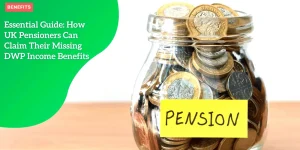Scotland Announces Universal Winter Fuel Payment 2025: What Every Pensioner Needs to Know
Anúncios
Overview of the New Policy
Universal Winter Fuel Payment Announcement
Scotland’s Social Justice Secretary, Shirley-Anne Somerville, has unveiled a groundbreaking plan set to take effect in the winter of 2025/26—a universal winter fuel payment for all Scottish pensioners.
This pivotal move aims to provide much-needed support to approximately 900,000 pensioners who have been left vulnerable after the UK and Scottish governments previously terminated a similar universal payment.
Anúncios
Benefiting the Vulnerable
This new initiative introduces the Pension Age Winter Heating Payment as a devolved benefit.
For pensioners who receive pension credit or other similar benefits, the new scheme will provide payments ranging between £200 and £300.
Anúncios
Meanwhile, pensioners who are not on these benefits will receive a flat rate of £100.
This structure ensures that every Scottish pensioner receives some degree of support, making energy costs more manageable through the cold winter months.
Addressing Past Shortcomings
The policy comes in response to considerable concerns regarding the welfare of pensioners, particularly those who were adversely affected by the previous government’s decisions to cut universal winter fuel payments.
Shirley-Anne Somerville emphasized the Scottish Government’s commitment to treating citizens with fairness, dignity, and respect, ensuring they do not have to choose between heating and eating.
The Pension Age Winter Heating Payment now stands as a testament to Scotland’s commitment to the social welfare of its elderly population.
By introducing a devolved benefit, the Scottish Government demonstrates its ability to address unique local needs independently from broader UK-wide decisions.
Looking Ahead
While this new policy has garnered substantial support from various advocacy groups, there are still questions about immediate needs and interim measures for the current winter.
Critics, including the Scottish Conservatives, have labeled the announcement as not only delayed but also insufficient for immediate relief.
The chapter’s roadmap concludes just as we begin to delve into the intricacies of the payment structure and eligibility criteria, setting the stage for a deeper exploration of how this new policy will be rolled out and who stands to benefit the most.

Payment Structure and Eligibility
Starting in winter 2025/26, all pensioners in Scotland will receive a universal winter fuel payment.
This initiative, introduced by Social Justice Secretary Shirley-Anne Somerville, targets approximately 900,000 pensioners, addressing the critical need for heating support during colder months.
Eligibility and Payment Tiers
Under this new policy, the payment structure has been designed to provide more support to those who need it most:
- 🚗 Pensioners receiving pension credit or other benefits will receive a payment ranging from £200 to £300. The exact amount depends on their age and specific qualifying benefits.
- 🚗 All other pensioners will receive a universal payment of £100.
These payments aim to alleviate the economic strain caused by heating costs during winter, ensuring that all Scottish pensioners get necessary support.
This method counters the previous cuts to universal winter fuel payments, reflecting the Scottish government’s commitment to pensioner welfare.
Universal Coverage
One of the key elements of this policy is its coverage.
Unlike previous iterations, this new scheme offers universal support, leaving no Scottish pensioner without assistance.
The reasoning behind this broad coverage is to prevent older individuals from having to choose between heating and other essential expenses.
This comprehensive reach underscores a commitment to fair and inclusive support for all pensioners in Scotland.
Transition
As we move forward, understanding how this new payment structure intertwines with larger support measures and the broader context behind its introduction will provide a holistic view of its anticipated impact.
Additional Support Measures
The Scottish government’s announcement of a universal winter fuel payment is part of a broader set of initiatives aimed at providing comprehensive support to pensioners.
Alongside the direct payments, significant additional support measures have been introduced.
Allocation for Scottish Welfare Fund
A critical component of these support measures is the allocation of £20 million to the Scottish Welfare Fund.
This fund is essential in providing financial assistance to those in dire need.
It aims to offer immediate help to individuals and families facing crisis situations, ensuring that essential needs are met promptly.
Through the increased funding, the Scottish Welfare Fund can expand its reach and efficacy, enabling more targeted and timely interventions for pensioners who might be struggling with unforeseen expenses or emergencies.
This holistic approach helps mitigate the impact of unexpected financial burdens and supports the broader goal of financial stability for the elderly.
Warmer Homes Scotland Program
Another £20 million has been earmarked for the Warmer Homes Scotland program.
This initiative focuses on improving energy efficiency and reducing fuel poverty by upgrading homes to be more energy-efficient.
The program offers a variety of services, including insulation, heating improvements, and other energy-saving measures.
By doing so, it helps lower energy bills and makes homes warmer and more comfortable.
Importantly, it goes beyond immediate relief, striving for long-term benefits by equipping homes with sustainable solutions to reduce energy consumption, thus providing enduring financial relief for pensioners.
Grant Funding for Social Landlords and Third Sector Partners
To support housing-related issues, £1 million has been allocated as grant funding for registered social landlords and third sector partners.
This grant is aimed at sustaining tenancies and preventing homelessness among vulnerable groups, including pensioners.
By funding these organizations, the government ensures that there are dedicated resources to assist in tenancy sustainment projects, offering support that includes advice, mediation services, and small grants for necessary home improvements.
This collaborative approach leverages the expertise and outreach of social landlords and third sector partners to address housing insecurities comprehensively.
These additional measures reflect a multi-faceted strategy to support Scottish pensioners, recognizing that direct financial aid must be complemented by broader welfare and housing initiatives.
This complete package aims to create a stable and secure environment for pensioners, addressing both immediate and long-term needs to enhance their quality of life.
With these robust support systems in place, the Scottish government is taking significant steps towards ensuring that pensioners do not have to choose between heating their homes and meeting other essential needs.
Background and Context
The universal winter fuel payment announcement by the Scottish government marks a significant shift in policy, responding to past cuts and aiming to better support pensioner welfare.
This change is set apart by the devolved nature of the benefit, emphasizing Scotland’s distinctive approach.
History of the Universal Winter Fuel Payment
Previously, a universal winter fuel payment was available, but it was cut by both the UK and Scottish governments.
The cutbacks meant that many pensioners found themselves without critical financial help during the winter months—a period that sees heightened energy costs due to increased heating needs.
These cuts sparked widespread concern among advocacy groups and the public, raising questions and prompting discussions about the welfare of the elderly.
Response to Concerns
The new policy directly responds to these concerns by reinstating a universal winter fuel payment through the Pension Age Winter Heating Payment.
This is a crucial development aimed at correcting the gap left by the previous cuts.
The Scottish government has shown a clear commitment to addressing the needs of pensioners, ensuring no one has to choose between heating their homes and other essentials.
Social Justice Secretary Shirley-Anne Somerville articulated the government’s dedication to treating people with fairness, dignity, and respect.
She emphasized that under the Scottish government’s watch, older people would not be abandoned during the winter months.
This approach is designed to provide peace of mind and financial relief to around 900,000 pensioners.
A Devolved Matter
It is important to note that the Pension Age Winter Heating Payment is a devolved benefit.
This means that Scotland is taking an independent route, distinct from the UK government’s policies.
The devolved status allows the Scottish government to tailor the benefit more closely to the needs of its residents.
This independence underscores the differences in policy approaches between the Scottish and UK governments, with Scotland opting for a more extensive support system for its aging population.
Looking Ahead
As we move to explore the reactions and criticisms of this policy announcement, it becomes clear that while the move is generally well-received, it also faces scrutiny and calls for immediate action.
The discussions and opinions surrounding the timing and sufficiency of the new measures will be crucial in understanding the broader impact and future adjustments needed.
Reactions and Criticisms
The introduction of the universal winter fuel payment for all Scottish pensioners in 2025/26 has sparked a variety of reactions from different stakeholders.
The policy, aimed at assisting around 900,000 pensioners, was met with both praise and skepticism.
Support from Advocacy Groups
Advocacy groups, such as Advice Direct Scotland and the End Fuel Poverty Coalition, have welcomed the announcement.
They see it as a positive step toward ensuring that pensioners do not have to make difficult decisions between heating their homes and other necessities during winter.
According to Andrew Bartlett, Chief Executive of Advice Direct Scotland, “Thousands of people are still facing the terrible reality of another winter where they must choose between putting the heating on and having a hot meal.”
He emphasizes the importance of this policy in alleviating such dire choices for pensioners.
The End Fuel Poverty Coalition has also highlighted the need for immediate support, reflecting a broader concern for long-term, sustainable energy assistance for Scotland’s elderly population.
Concerns About Immediate Support Needs
While the policy is regarded as a significant improvement for pensioners, there is considerable concern regarding its timing.
The universal winter fuel payment is set to commence in 2025/26, which leaves the present needs of pensioners unaddressed.
Advocacy groups have stressed the urgency for support in the current winter.
Many pensioners are struggling with rising energy costs now, and the delay in the implementation of this benefit could mean another two difficult winters for them.
There is a consensus among these groups that immediate action is necessary to bridge this gap until the new policy takes effect.
The concern is that failing to provide adequate support in the interim may undermine the overall goals of the policy once it is implemented.
Political Opposition
The announcement has not been without its detractors.
The Scottish Conservatives have criticized the policy, labeling it as “shameless spin” by the Scottish National Party (SNP).
Liz Smith, the shadow cabinet secretary for social security, argues that the announcement misleads pensioners into believing immediate relief is at hand when, in reality, they still face another winter without the needed support.
Smith states, “Despite trying to talk this decision up to pensioners, the reality is that this will be a cut for many of them and help still won’t be coming this winter.”
The Scottish Conservatives assert that the SNP ministers are attempting to garner favor with pensioners even though they initially supported cuts to the universal winter fuel payment.
This political tension highlights the contentious nature of welfare policies and their impact on public opinion.
Transitioning into the broader discussions about this new policy, it’s clear that while the Pension Age Winter Heating Payment is a step in the right direction, its implementation timeline and immediate effectiveness are critical aspects that require further scrutiny and action to ensure no pensioner is left struggling.






